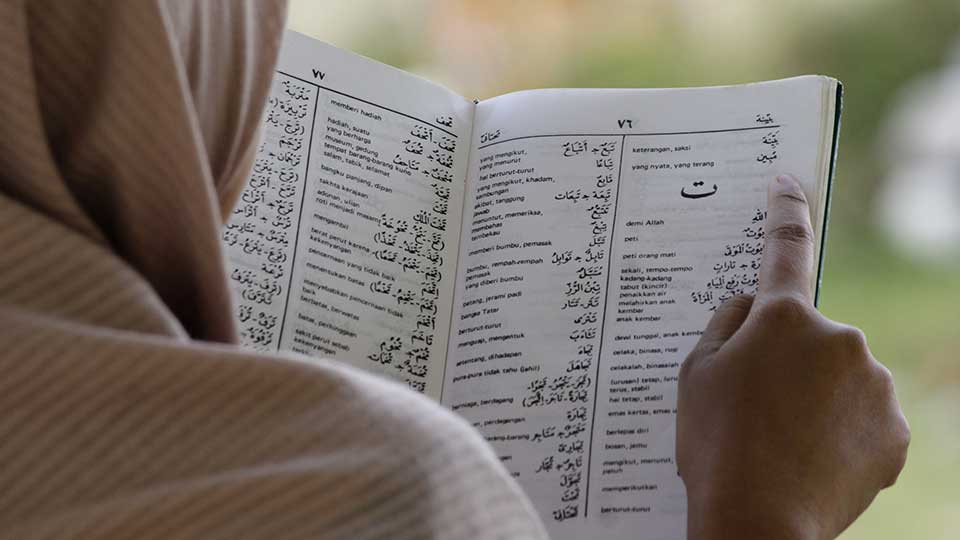If you want to learn Arabic for personal interest or to pursue a career, growing your vocabulary is beneficial. A good grasp of the language makes speaking and interacting with other Arabic speakers easier. Here are some ways to build a strong vocabulary when learning Arabic:
Start With Commonly Used Words
When you’re starting to learn Arabic, it’s beneficial to focus on commonly used words so you can begin to incorporate them into daily language practice or interactions. Beginner courses usually focus on words used in everyday life, such as greetings, polite phrases, and basic verbs. Other examples of words to learn include time, numbers, family members, and everyday objects. Instead of struggling to memorize many words, learn and review a few each day. Repetitive practice of a few words at a time can help reinforce pronunciation, definition, and contexts for use.
Practice by Topic
Practicing Arabic by topic instead of through a selection of random words can help build a strong vocabulary. When you categorize phrases by themes, your mind can easily picture how they’re related. This method may make it easier to remember vocabulary and use words together in real conversations.
You may start with easier topics like travel, weather, and food. Once you learn words in a theme, write short sentences or read them out loud alone or with a language partner. Writing and speaking new vocabulary usually helps improve language skills. It draws attention to grammar rules and language structure. It may also help you learn to switch between languages more quickly.
Use Flashcards
Flashcards can help you learn Arabic vocabulary through repetition. On each card, include the Arabic word or phrase, how to pronounce it, and what it means in English. Reviewing your flashcards for several minutes a day can help you prevent forgetting what you have already learnt.
Instead of rushing through the cards to complete them, recall the word before flipping the card. If you struggle with some words, concentrate more on them to help you remember. Since images can help improve memory, some cards may include pictures of nouns and other words.
Use the Language in Real Life
To help vocabulary stick in your mind, use Arabic in real life. The more you hear, speak, and write, the easier it is to remember. Watching Arabic shows and listening to podcasts with subtitles can help you understand how vocabulary is used in different contexts. Writing simple sentences about your day in Arabic enables you to practice translation and the written language. Speaking new words or sentences aloud may help you remember pronunciation and meaning. You can also follow Arabic content on social media by subscribing to their pages and channels to learn spoken phrases.
Learn Arabic Online
To learn Arabic, register for an online course with experienced tutors. Beginner’s courses usually focus on everyday language, while advanced classes work with current publications. Instructors can offer immediate feedback to help you better understand how words are used and spoken. To master Arabic vocabulary, enroll today with a trusted institution and start learning the language.

